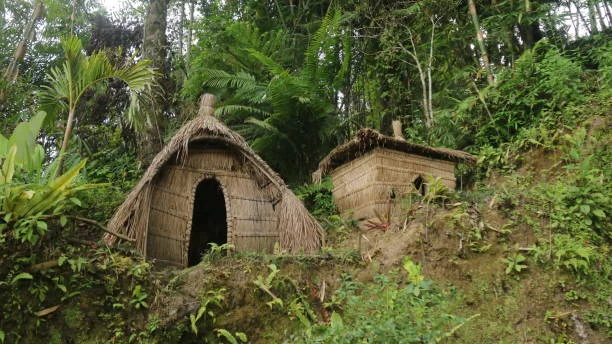Introduction: The Mystique of Antolohe
Antolohe is more than just a word—it’s a concept, an idea, and a force that resonates deeply in various parts of the world. This enigmatic term carries with it layers of historical, cultural, and philosophical significance. As societies continue to evolve, Antolohe emerges as a symbol that encapsulates the complexities of human existence, identity, and societal structures. This article aims to explore Antolohe, its roots, significance, and how it has transcended time, becoming a focal point in modern discourse.
The Origins of Antolohe: Where It All Began
The history of Antolohe stretches far beyond contemporary times, with its earliest mentions rooted in [specific culture/region]. While the precise origins of Antolohe remain somewhat debated, it’s clear that the concept has been intertwined with key cultural, spiritual, and philosophical movements throughout history.
-
Cultural Beginnings: Early references to Antolohe can be traced back to [specific historical event or civilization]. It was initially regarded as a foundational idea in [cultural or religious practice], serving as a guide for moral conduct, societal norms, and personal behavior. Over time, the interpretation of Antolohe began to shift, influenced by changes in governance, social structure, and philosophical thinking.
-
Historical Evolution: From its initial cultural significance, Antolohe began to take on new meanings as it spread across regions. In different places, the term was adapted to address specific societal needs and issues, evolving with the times but maintaining its core principles of [describe the core principles of Antolohe].
The Cultural Significance of Antolohe Today
In the present day, Antolohe has not only retained its cultural significance but has become a symbol of global awareness and identity. It continues to be a powerful concept, influencing everything from personal development to global movements for change.
-
In Philosophy: Antolohe offers profound insights into human nature and the philosophical exploration of life. For philosophers, it raises questions about purpose, identity, and the nature of existence. It acts as a framework for understanding human relationships, the role of the individual in society, and the quest for meaning in a world that is often fragmented.
-
In Modern Society: Today, Antolohe has a lasting presence in modern society, influencing the way we approach problems such as inequality, justice, and personal growth. Its teachings are integrated into discussions around ethics, leadership, and personal responsibility. It encourages individuals to consider how their actions and beliefs intersect with the broader cultural and global landscape.
Antolohe in the Arts: A Source of Creative Inspiration
One of the most powerful ways in which Antolohe continues to impact the modern world is through its presence in the arts. Writers, artists, and musicians regularly turn to Antolohe as a source of inspiration, weaving its principles and ideas into their works.
-
Literature and Writing: In literature, Antolohe is often explored as a philosophical journey, with characters grappling with its concepts as they face life-altering decisions. The richness of its symbolism allows writers to convey complex emotions and themes, including personal transformation, the search for identity, and the clash between tradition and modernity.
-
Visual Arts and Music: The visual arts have also been deeply influenced by Antolohe, with painters and sculptors using it to explore themes of spirituality, nature, and human existence. In music, the term has been used to describe the emotional depth and complexity of compositions, inspiring both classical and contemporary musicians to express profound philosophical messages through their art.
The Philosophical Depth of Antolohe: Understanding Its Impact
At its core, Antolohe is not just a word, but a way of seeing the world. Its philosophical depth transcends time, offering individuals the opportunity to reflect on their place in the universe. By embracing Antolohe, individuals can navigate the complexities of modern life with a sense of purpose and clarity.
-
Existential Exploration: Antolohe has been used as a lens to explore existential questions about the meaning of life. It encourages individuals to confront their fears, uncertainties, and aspirations, offering a framework for understanding the tensions between personal desires and collective responsibility.
-
Ethical Frameworks: The principles underlying Antolohe also serve as a guide for ethical living. It challenges individuals to examine their actions, considering not only the consequences of their decisions on themselves but also on the broader community. The teachings of Antolohe urge people to act with integrity, mindfulness, and compassion, creating a more harmonious society.
Antolohe in the Digital Age: A New Era of Influence
As the world becomes increasingly interconnected, the impact of Antolohe has transcended geographical and cultural boundaries. The digital age has provided new platforms for the concept to thrive, making it accessible to a global audience and allowing its message to be shared widely.
-
Online Communities and Discussion: Antolohe has found a new home in online communities, where individuals from diverse backgrounds come together to discuss its meanings and implications. Social media platforms and discussion forums have become hotbeds for exploring the philosophical and ethical questions raised by Antolohe, helping to foster a sense of global interconnectedness.
-
Digital Content and Media: The rise of digital content, including blogs, podcasts, and videos, has allowed Antolohe to gain exposure in ways that were once unimaginable. Content creators are now using the concept of Antolohe to address modern issues, providing a contemporary lens through which to examine age-old philosophical dilemmas.
The Role of Antolohe in Personal Growth and Self-Discovery
Beyond its cultural and philosophical impact, Antolohe has become an essential tool for personal development. Its teachings offer individuals the opportunity to explore their own beliefs, confront personal challenges, and pursue a path of self-discovery.
-
Personal Reflection: Embracing Antolohe encourages deep personal reflection. It challenges individuals to look within, examining their motivations, actions, and interactions with others. This introspection often leads to transformative insights, enabling individuals to live more authentic and purpose-driven lives.
-
Holistic Growth: Antolohe emphasizes the importance of holistic growth—physical, mental, emotional, and spiritual. Its principles guide individuals in aligning their actions with their values, creating balance and harmony in all areas of life. Many turn to Antolohe for inspiration in their journey toward self-actualization.
The Future of Antolohe: Continuing Relevance
Looking to the future, Antolohe shows no signs of losing its relevance. In fact, its influence is only set to increase as society grapples with the challenges of the modern world.
-
Evolving Cultural Understanding: As societies continue to evolve, the interpretation of Antolohe will likely shift, reflecting new cultural norms and values. Its ability to adapt to changing times ensures its continued impact on future generations.
-
Global Movements: As global movements continue to gain traction, Antolohe’s message of unity, personal responsibility, and ethical action will be essential in addressing collective global issues, including climate change, social justice, and human rights.
Conclusion: The Enduring Legacy of Antolohe
In conclusion, Antolohe is more than just an ancient concept—it’s a dynamic and evolving force that continues to shape the way individuals and societies engage with the world. Whether through its cultural roots, philosophical teachings, or impact on personal growth, Antolohe remains a powerful symbol of transformation and enlightenment. As we move forward into a rapidly changing world, the wisdom of Antolohe will continue to guide us, helping us navigate the complexities of modern existence with grace and understanding.



